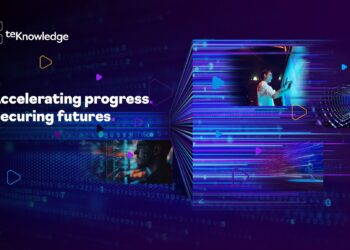The Nigerian economy is projected to grow by $8.79 billion in the next three years to 2023, driven largely by the ICT, agriculture, health, finance and insurance sectors, according to a new study by global training providers elev8 and the BusinessDay Research and Intelligence Unit (BRIU).
More than half of the projected growth will come from the ICT sector, as companies continue to create innovative products and services leveraging ICT and telecoms. To take advantage of this growth, however, businesses will need to invest in appropriately reskilling and upskilling the national workforce to create a better digital Nigeria.
The research comes off the back of the Covid-19 pandemic, which has laid bare the digital divide, with those businesses having invested sufficiently in their digital capabilities overtaking those firms who failed to do so.
However, this trend of digitally forward businesses outperforming their technology-inferior counterparts isn’t new, the study reveals. Analysis of the data, which went back as far as 1992, showed that the major companies outperforming others in Nigeria are those that spend more on upskilling, research and development, and technology acquisition.
Economic rewards await
In recognition of its benefits, Nigeria has made efforts in the past, and continues to make more efforts at digitalizing its economy. The progress made in Nigeria’s ICT sub sector has had a positive effect on its gross domestic product (GDP). Research shows that the sector’s contribution to GDP has risen from 7.70 percent in 2012 to 14.30 percent by Q2 2020.
Meanwhile, the Nigerian government’s National Digital Economy Policy and Strategy, launched in 2019, aims to improve digital literacy and skills to build out the country’s digital capabilities.
However, the digital infrastructure readiness in Nigeria is still far below the global average. For this to be upgraded, the current skill set of government employees working in this area will need to be updated. This should warrant the designing of training programs that will help the government raise the level of digital infrastructure in Nigeria in the shortest possible time and at affordable costs.
The high economic rewards from closing the digital skills gap should see this become an even greater priority. If the entire Nigerian economy is digitalized, the country could take a bigger bite of the global digital economy, which is estimated at $11.5 trillion.
Where digital leaders are made
Global training provider elev8 offers training programs focused on the latest technologies, and is uniquely placed to help businesses and the Nigerian government connect to opportunities as highlighted in the report.
Bringing together renowned industry experts, elev8 offers the flexibility of virtual classrooms or face-to-face programs, depending on what’s best for the organization and its learners.
Taking a holistic approach, power skills like communication, collaboration and analytical thinking are embedded into elev8’s technical training in order to develop well-rounded digital experts who can bring the most value to their employers.
Training methods are practical and action-based – built around projects, tackling real business challenges – enabling learners to put theory into practice from the day one.
No matter the technical need, elev8 can design and implement bespoke solutions tailored to a company’s individual requirements.
elev8’s global academy equips business leaders, teams and organizations with the skills they need to leverage the technologies of the future and transform Nigeria into a knowledge-based economy.
To read the report in full, or to discover more about the elev8 training academy, go to www.elev8me.com/en-us/africa.




















